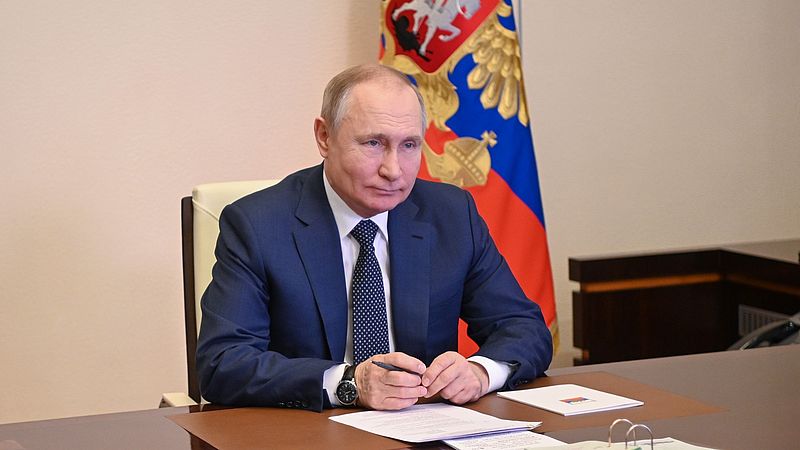‘A tip!’, SP MP Van Dijk cites 6 million euros in Russian assets which have so far been frozen in the Netherlands under international sanctions. This is a stark contrast to the 10 billion that Belgium has blocked.
Finance Minister Kaag announced the figure in the House of Representatives last Monday. This caused frustration among some MPs. After all, this is mostly about billionaires, is the prevailing feeling. The frozen funds are in the accounts of asset managers, banks and pension funds, as well as those of wealthy Russian individuals and companies who EU sanctions list stand up.
How could we have frozen far less wealth than Belgium? Expert Yvo Amar, attorney in sanctions law and export control at attorney BenninkAmar in Amsterdam, answers the most important questions.
1. How can the difference between the Netherlands and Belgium be so big?
“I’ve noticed too. Belgium has blocked a lot and the Netherlands has very little. There are several reasons for this. There are differences in the types of financial institutions. In the Netherlands it’s mainly about trust offices and in Belgium it’s mainly about banks.”
“Since the annexation of Crimea in 2014, there have been sanctions against Russia. The Netherlands checked more closely whether they were complied with than Belgium did. This is partly due to the shooting down of MH17. Russia then goes to another bank with their relationship with Russia because it is more often through the trustee office, often referred to as a mailbox company, but they themselves do not have Russian money in the bank.”
“So the way the total is calculated may differ between the two countries. For example, if the governance of Russian trusts is frozen, Belgium can calculate the value of the trust, while the Netherlands believes that there is no value to a trust. frozen administration. can be linked.”
also watching
2. Could Belgium apply different sanctions than the Netherlands, so they freeze more money?
“In principle, all EU countries should interpret sanctions in the same way. But in practice there may be differences.”
“It’s important to know that all countries are allowed to apply differently and also punish differently in cases of sanctions violations. A banker who does business with Russians however can get 20 years in prison in France and ‘only’ 6 years in prison. The Netherlands. State. -EU countries can decide for themselves.”
“There are 862 Russians and 73 Russian companies in it EU sanctions list, which is therefore also true in the Netherlands. Institutions have shown that they have 132 ‘customer relationships’ with them. This can involve multiple relationships with companies or individuals.”
also watching
3. What about the practical side of money and goods being frozen, for example, how long can it be frozen?
“In principle it can be frozen indefinitely. Furthermore, the company where the money or property is located is responsible for the freezing. If the shipyard has a ship for maintenance or something similar at the time of freezing, then it has to put that stuff there. keep it for years.”
“You don’t receive any compensation for storage or parking or anything like that. There is no legal provision for this. That’s why you are now seeing more and more governments taking over the freezing of big ships, because it would be very difficult for the shipyards. .”
“By the way, you don’t have to worry about maintenance responsibilities. If the freeze lasts for years, the object can of course deteriorate. But there’s no question of liability. The people at black list can’t claim damages later, because the yacht came back to him in bad condition.”
4. As a sanctions lawyer, have you ever been approached by Russian oligarchs to help sanction them?
“Yes, our office has requests from the oligarchs to help them. They only have one question: how do we get rid of the sanctions? They want the sanctions to go to the European Court of Justice. We won’t be allowed to.”
“It’s not that the sanctions are preventing us from doing that. Legal aid is allowed, economic aid is not. Although paying the bill might be a little more difficult, haha. We assist Dutch parties doing or doing business with Russia. Think companies in the food, manufacturing or technology industries.”
Sanctions lawyer Yvo Amar explains how sanctions for Russians with wealth in the Netherlands work in EenVandaag on NPO Radio 1

“Coffee trailblazer. Analyst. General music geek. Bacon maven. Devoted organizer. Incurable internet ninja. Entrepreneur.”







